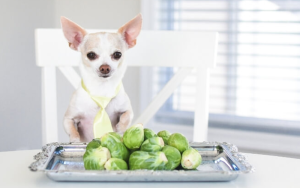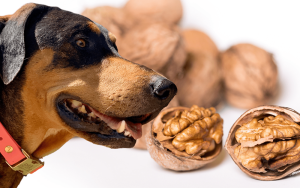Can Dogs Eat Onions? Unraveling the Truth for Pet Owners

As a dog owner, ensuring your pet’s safety and health is always a top priority. You may already know that certain human foods can be harmful to your dog, but one that often raises confusion is onions. In this comprehensive guide, we will explore why onions
are dangerous for dogs, how they affect your pet’s health, and what you should do if your dog accidentally consumes onions. By the end of this article, you will have all the information you need to keep your dog safe from this toxic food.
Introduction
Onions, garlic, and other members of the Allium family are common ingredients in many dishes around the world, but they are not suitable for your canine companion. While onions may be delicious and nutritious for humans, they contain compounds that are
toxic to dogs, even in small amounts. In this article, we’ll dive into the risks associated with dogs eating onions and provide you with actionable steps to ensure your pet remains healthy and safe.
Why Are Onions Toxic to Dogs?
Onions contain compounds called thiosulfates, which are toxic to dogs and other animals, including cats. When ingested, thiosulfates cause oxidative damage to red blood cells, leading to a condition known as hemolytic anemia.
This is a condition where the dog’s red blood cells break down prematurely, reducing their ability to carry oxygen throughout the body.
The severity of onion poisoning can vary based on factors such as the dog’s size, the amount of onion consumed, and the type of onion. Raw onions are more potent than cooked ones, but both are dangerous. In fact, even small amounts of
onion can lead to symptoms of poisoning.
How Much Onion Is Dangerous for Dogs?
The toxic dose of onion for dogs can vary depending on their size and breed. However, general guidelines suggest that 0.5% of a dog’s body weight in onion can be harmful. For example, if a dog weighs 20 pounds, consuming just one ounce of onion could potentially cause toxicity. Dogs that consume large amounts of onion (especially over an extended period) are at a higher risk of developing hemolytic anemia.
Even small amounts, such as a few bites of onion from a cooked dish, can lead to symptoms of poisoning. Therefore, it’s crucial to be vigilant about keeping onions and onion-containing foods away from your pets.
Symptoms of Onion Toxicity in Dogs
Onion poisoning may not show immediate symptoms, and some signs may appear hours or even days after ingestion. Common symptoms of onion toxicity in dogs include:
- Vomiting and diarrhea: Often seen within hours of ingestion, these symptoms are the body’s attempt to expel the toxins.
- Lethargy or weakness: Due to the lack of oxygen being carried by the red blood cells, your dog may become weak or sluggish.
- Pale gums: A sign of hemolytic anemia, where red blood cells are being destroyed.
- Increased heart rate: A result of the body’s attempt to compensate for the loss of red blood cells and reduced oxygen levels.
- Breathing difficulties: This can occur if the anemia becomes severe enough to affect the heart and lungs.
- Dark-colored urine: This indicates the presence of hemoglobin released from destroyed red blood cells.
If you notice any of these symptoms in your dog, it’s important to seek veterinary care immediately. Even mild cases of onion poisoning can lead to long-term health issues if not treated promptly.
Can Dogs Eat Cooked Onions?
Many dog owners believe that cooking onions might reduce their toxicity, but this is not the case. Cooking onions doesn’t eliminate the thiosulfates that make them toxic to dogs. In fact, cooking onions can sometimes concentrate the toxins,
making them even more dangerous. Even small amounts of cooked onions in soups, stews, or other dishes can cause harm.
Onion powder and onion salt are also dangerous and should be avoided at all costs. They are often found in packaged foods and seasonings, so be cautious about the ingredients in the foods you share with your pet.
What Happens If a Dog Eats Onion?
If your dog consumes onion, the first step is to assess the amount and type of onion ingested. If you are unsure of how much your dog has consumed, it’s best to err on the side of caution and consult with your veterinarian. Here are the general steps
to follow if your dog eats onion:
1. Determine the Amount of Onion Eaten
- If the onion was a small portion or just a few bites, the risk may be low, but you should still monitor your dog for any symptoms of poisoning.
- If your dog consumed a large quantity of onion or if it has ingested onion over a prolonged period (such as in a diet), there may be a higher risk of toxicity.
2. Look for Symptoms
- Watch for signs like vomiting, diarrhea, weakness, or pale gums. If any of these symptoms are present, contact your vet immediately.
3. Call Your Veterinarian
- If you are concerned or if your dog has eaten a dangerous amount of onion, it’s essential to contact a veterinarian. The vet may induce vomiting, administer activated charcoal to absorb the toxins, or recommend other treatments to prevent further
damage.
4. Treatment for Onion Poisoning
- In mild cases, the vet may simply monitor your dog’s condition and provide supportive care. This could include fluids to prevent dehydration and medications to manage symptoms.
- In severe cases of onion toxicity, blood transfusions may be necessary if hemolytic anemia develops. The veterinarian will take appropriate action based on your dog’s condition.
What to Do If Your Dog Eats Onion Powder or Onion-Based Seasoning?
Onion powder, onion salt, and other seasoning mixes can be just as dangerous as fresh onions. These products are often highly concentrated, meaning that even small amounts can pose a significant risk to your dog’s health. If your dog ingests onion seasoning
or flavored foods containing onion powder, you should:
- Contact your vet immediately, as they can advise on the best course of action.
- Monitor for symptoms such as vomiting, lethargy, or unusual behavior.
- Prevent access to foods with seasoning to avoid future incidents.
What Are Some Safe Alternatives to Onions for Dogs?
As a responsible pet owner, you want to provide your dog with the best possible diet. Fortunately, there are plenty of safe and nutritious alternatives to onions that can add flavor and nutrients to your dog’s meals. Some dog-friendly options include:
- Carrots: High in fiber and vitamins, carrots make a crunchy, healthy snack for dogs.
- Sweet potatoes: Rich in fiber and antioxidants, sweet potatoes are a great addition to your dog’s diet.
- Blueberries: Packed with antioxidants and low in calories, blueberries are a healthy treat for dogs.
- Green beans: Low in calories and full of nutrients, green beans are another great option for dogs.
How to Keep Your Dog Safe from Onion Toxicity
Preventing onion poisoning in dogs is relatively simple. Here are some tips to ensure your dog stays safe:
- Keep onions and onion-containing foods out of reach. Store onions, garlic, and other toxic foods in areas your dog cannot access.
- Check ingredients in packaged foods. Before giving your dog any packaged food or human leftovers, always check the ingredients list to ensure it doesn’t contain onion powder, onion salt, or other harmful additives.
- Educate family members and visitors. Make sure everyone in your household knows that onions and onion-based foods are dangerous for dogs.
- Know the symptoms of onion toxicity. Familiarize yourself with the signs of onion poisoning so you can act quickly if necessary.
Conclusion
Onions may be a staple in many human diets, but they are highly toxic to dogs. Even small amounts of onions can lead to serious health problems like hemolytic anemia, and large amounts can cause severe complications. It’s important to recognize the dangers
of onions and take precautions to keep your dog safe. If your dog does consume onions, contact your veterinarian immediately to ensure prompt treatment and avoid lasting harm.
By following the safety guidelines provided in this article, you can help protect your pet from the harmful effects of onion toxicity and ensure a long, healthy life for your furry friend. Stay vigilant, educate yourself, and always prioritize your dog’s
well-being when it comes to food choices.






